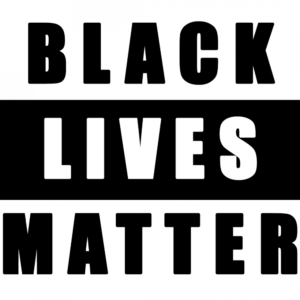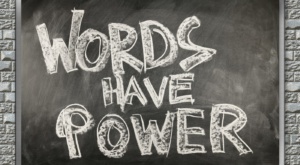At least twice a year, Merriam-Webster updates its dictionary, the most recent batches having been announced in September 2019 and March 2020. Sometimes it's to add brand-new terms, others it's to allow new word usage, and still others it's to tweak existing entries. While some people couldn't care less and don't even see any differences between various synonyms (*cough* my husband *cough*), for those of us who are hyperaware of diction, usage, and the connotation of words, these changes to the standard American English dictionary can be a big deal. And then there are people who are ultra-passionate about certain topics, for whom the exact wording of certain M-W entries is paramount.
The latter of which concerns this post today. Our country is being torn apart once more by racism (or rather, is still being torn apart... See? Words matter!) after the death of George Floyd in Minneapolis, Minnesota, on May 25, 2020. There has been a flood of new stories since that day, and while there are a plethora of protestors physically going to rallies, there are others who are taking part in the Black Lives Matter movement from their homes where shelter-in-place orders still in effect.

Those who aren't literally standing side-by-side other supporters, however, tend to get overlooked. Yet it's not always a person's tangible presence that makes the difference. This was the case for Missouri resident Kennedy Mitchum who, according to the Associated Press, reached out to Merriam-Webster recently, encouraging them to alter their definition of racism. And last week, they agreed.
AP - Merriam-Webster is revising its definition of racism after a Missouri woman’s emails claimed it fell short of including the systemic oppression of certain groups of people.
Kennedy Mitchum, who lives inthe St. Louis suburb Florissant, said people would argue with her about the definition of racism and she realized the problem was in the Merriam-Webster’s dictionary, KMOV-TV reported.
“It’s not just disliking someone because of their race,” Mitchum wrote in a Facebook post. “This current fight we are in is evidence of that, lives are at stake because of the systems of oppression that go hand-in-hand with racism.”
The revision comes against the backdrop of protests around the country against police brutality after the death of George Floyd, a black man who died after a Minneapolis police officer pinned his neck to the ground.
The Merriam-Webster online dictionary first defines racism as “a belief that race is the primary determinant of human traits and capacities and that racial differences produce an inherent superiority of a particular race.”
Mitchum, who recently graduated with a degree in law, politics and society, said that definition was too simple.
“So, a couple weeks ago, I said this is the last argument I’m going to have about this. I know what racism is, I’ve experienced it time and time and time again in a lot of different ways, so
enough is enough. So, I emailed them about how I felt about it. Saying this needs to change,” she said.
Peter Sokolowski, editor at large at Merriam-Webster, said in an emailed statement to The Associated Press that the dictionary’s second definition is “divided to express, first, explicit institutional bias against people because of their race, and, second, a broader implicit bias that can also result in an asymmetrical power structure.”
“This second definition covers the sense that Ms. Mitchum was seeking, and we will make its wording even more clear in our next release,” he said. “This is the kind of continuous revision that is part of the work of keeping the dictionary up to date, based on rigorous criteria and research we employ in order to describe the language as it is actually used.”
See the original AP post HERE
I'm interested to see just what M-W changes in their second entry to address Mitchum's concerns, not to mention if those changes will cause anyone else to call for further adjustments. Because If you were to ask every person you knew to define racism for you, no two answers would be exactly the same. There will never be a situation where every person who speaks American English is completely satisfied with the definition of such a loaded word.

My point in sharing all this? The words we use matter, friends. Words have power and deeper meaning than their strict definitions.
My question to you, though,--and to the powers that be at M-W--is where should we draw the line between that strict definition and all the "rest"? Do you agree that the current definition of racism should be changed, or do you think it is clear enough as is and only opening a big ole can of worms?
We'd love to hear what you think and why!
